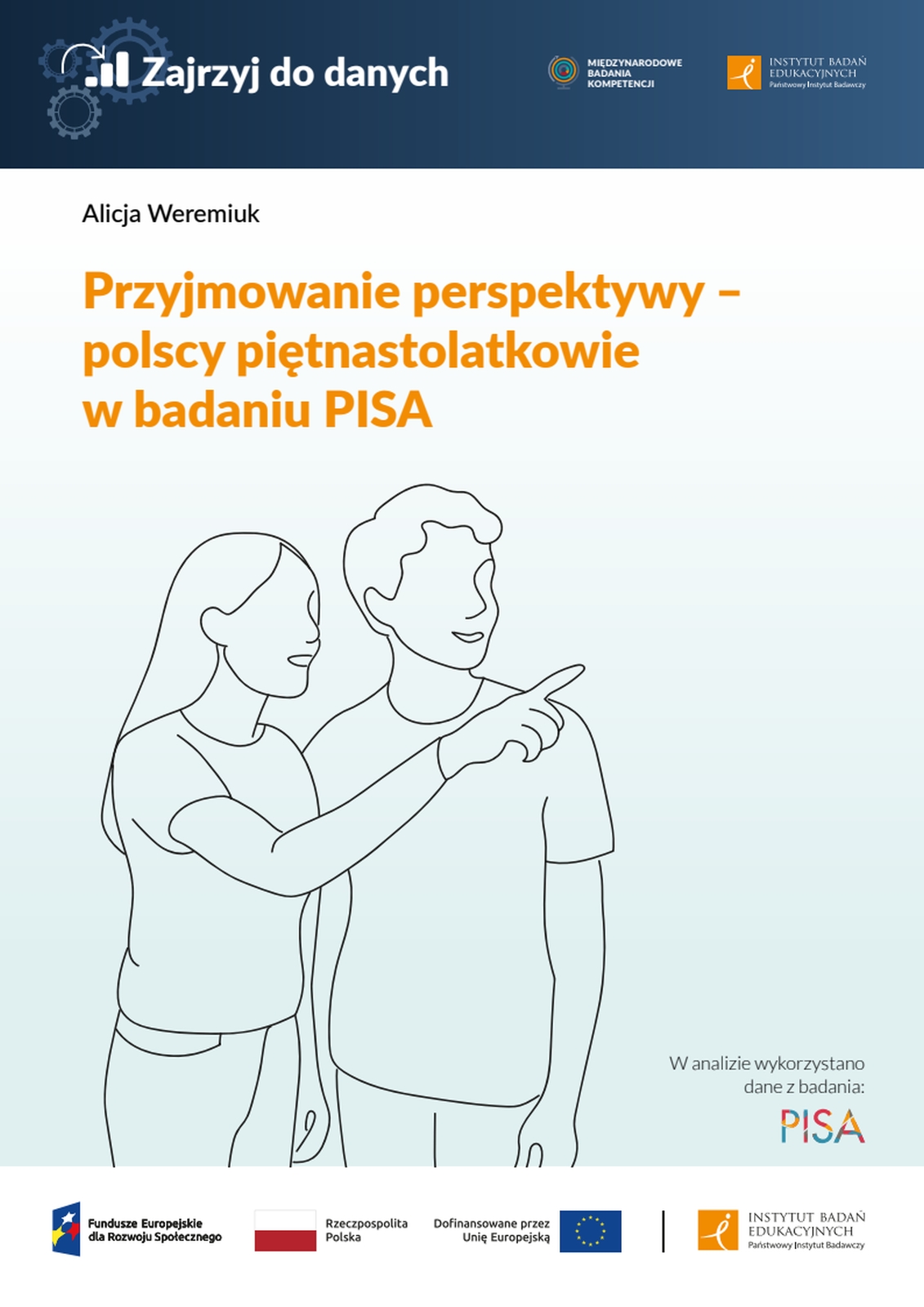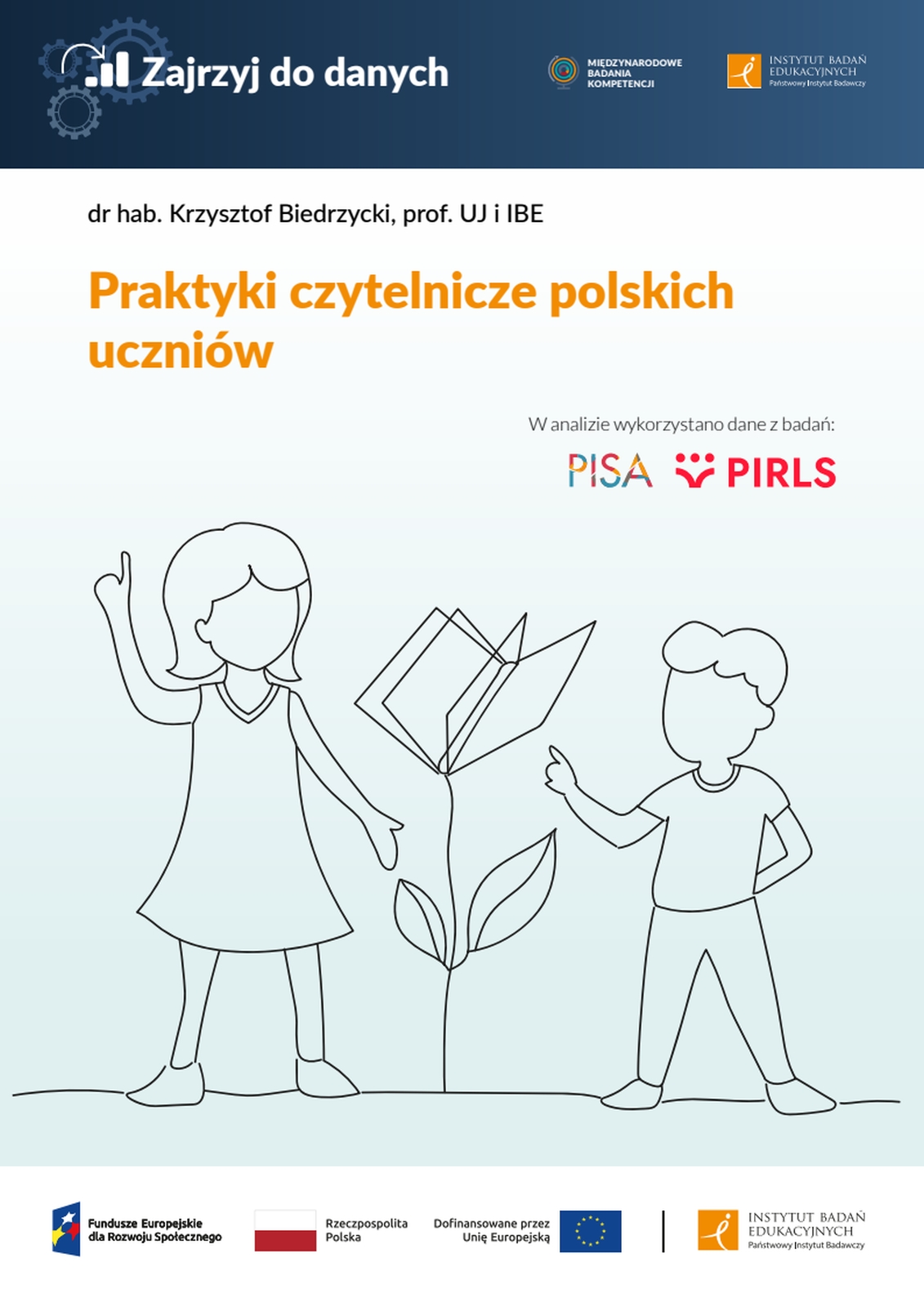Przyjmowanie perspektywy – polscy piętnastolatkowie w badaniu PISA
Alicja Weremiuk
Instytut Badań Edukacyjnych – Państwowy Instytut Badawczy, 2025
Opracowanie stanowi kolejną analizę tematyczną z serii „Zajrzyj do danych”, poświęconą zagadnieniu przyjmowania perspektywy. Autorka, na podstawie wyników badania PISA oraz przeglądu literatury, prezentuje znaczenie umiejętności przyjmowania perspektywy w kontekście budowania relacji w szkole, rozwiązywania problemów i osiągania konsensusu. W opracowaniu zwrócono uwagę na różnice w samoocenie postaw, umiejętności i zachowań związanych z przyjmowaniem perspektywy w zależności od płci i statusu społeczno-ekonomicznego uczniów oraz wskazano rolę szkoły w ich rozwijaniu. Zajrzyj do danych to seria krótkich, tematycznych analiz poświęconych zagadnieniom istotnym z punktu widzenia polskiej edukacji, opracowywanych na podstawie wyników międzynarodowych badań edukacyjnych.
Praktyki czytelnicze polskich uczniów
Krzysztof Biedrzycki
Instytut Badań Edukacyjnych – Państwowy Instytut Badawczy, 2025
Opracowanie stanowi pierwszą analizę tematyczną z serii „Zajrzyj do danych”, poświęconą praktykom czytelniczym polskich uczniów. Autor analizy, na podstawie wyników międzynarodowych badań edukacyjnych PIRLS i PISA, prezentuje znaczenie biografii czytelniczej uczniów w procesie pracy nad rozumieniem czytanego tekstu. W opracowaniu można znaleźć praktyczne wskazówki dla nauczycieli języka polskiego, w jaki sposób włączyć tę wiedzę do praktyki edukacyjnej i wspierać rozwój kompetencji czytelniczych uczniów. „Zajrzyj do danych” to seria krótkich, tematycznych analiz poświęconych zagadnieniom istotnym z punktu widzenia polskiej edukacji, opracowywanych na podstawie wyników międzynarodowych badań edukacyjnych.




